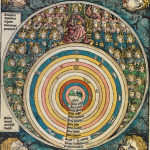On its face, the legal justification for Trayvon Martin’s shooting — Florida’s “Stand Your Ground” law, which allows citizens to use deadly force to protect themselves or others from harm — is race-blind. The question remains whether the same can be said for George Zimmerman, the neighborhood watch captain who pulled the trigger. His father says absolutely so — George, a former altar boy, had plenty of black friends, and even some black relatives. Though some listeners claim to have heard Zimmerman mutter, “fucking coons” while reporting Martin’s movements to police dispatchers, others hear “tools” or “punks.”
In the coming weeks, America will probably learn more about Zimmerman and his mindset than it ever wanted to know. Whatever mixture of affection and disaffection comes out in the wash, however, won’t likely alter what’s become conventional wisdom among blacks: that around anyone claiming to protect either private property or the public peace, they’d better watch their step. In her blog, Watch and Pray for Our Children, Dr. Michelle Johnson explains how she aquaints her kids with what she calls “the rules”:
3. Know who you are. You can’t do everything they do. In other words, just because your white friend does something that doesn’t mean you can do the same. Whether it’s hanging at the mall or going to a house party, police, teachers, and other authorities treat white children differently than black children. When my daughter is old enough to hang with friends in this manner, this will be one of “the rules.”
4. Go where you say you are going and come straight home. Being in the wrong place at the wrong time can lead to being falsely accused of crimes. Every year we hear about another person, usually a black male, who served time for a crime he didn’t commit. As a parent, I’m not trying to smother my child by making her check in with me. I just want to know where she is so I can vouch for her whereabouts.
Is Johnson exercising every mother’s God-given right by being alarmist? Maybe so. But I’ve experienced the exact flip side of her worst-case scenario: police officers have generally treated me with indugence. Call ’em “Sir” and don’t argue, the rule goes, and the officers will let me off with a warning, or at worst a ticket for “waste of finite resources,” which adds no points to the license. On at least two occasions, I had reason to believe that the benevolence I experienced had something to do with my race.
Possible Instance of White-Boy Privilege No. 1: Freshman year of college. I went to a keg party somewhere in downtown Phoenix with a small mob led by a volatile Bostonian named Brian. Within an hour, Brian had gotten himself into a fight, and the lot of us ejected onto the sidewalk. “We’re going back in,” shouted Brian, like Henry V at Harfleur, and proceeded to arm the storming party, your narrator included, with broken beer bottles.
Just then, a police cruiser pulled up and an officer stepped out. With his sidearm still safely in its holster, he asked what the hell we thought we were doing. When Brian began to babble back an answer through bloodied lips, the policeman cut him off. “Listen,” he said, in elder-brotherly tones, “I don’t have time to deal with this kind of nonsense. I’ve got to worry about Crips in that apartment compex” — he pointed East — “and Bloods in that apartment complex” — he pointed West. “Do yourselves and me a favor: drop this high-school crap and go home.” We did.
That winter, when I was home in New York on break, I told the story to a black guy I’d known in school. He sighed, rolled his eyes, made a number of other gestures that spelled out “what fools these mortals be,” and said, “You realize, if that was me, I’d be under the jail, right?” I did not dispute him.
Possible instance of White-Boy Privilege No. 2. When I began working at JP Morgan Chase, I was between cars. Reaching the office meant taking one bus to 24th St. and Van Buren, and changing to another that would take me to 16th and Buckeye; coming home meant doing the same thing in reverse. The outward trip, which I made in midmorning, was fine. The return trip, which began around nine in the evening, was a different matter. As a hub of drug-dealing and prostitution, 24th and Van Buren is — or, at any rate, was — a regular microcosm of urban blight. Standing on that corner for half an hour in business-casual, I felt like the last egg roll in a Chinese buffet.
One evening, the vibe was especially toxic. The parking lot of the Shell station behind the bus stop was filled with hard-eyed, shabbily dressed people I took to be hookers and other vice-industry professionals. I had the sense every New Yorker develops of being eyed up, cased as a possible target. A couple of men rode by on bicycles and threw me pointed looks. Reverting to habits learned over a hundred hours on dozens of subway platforms, I did my best to look nonchalant, keeping my head still as I turned my eyes up the street, hoping to catch sight of the approaching bus.
Just then three or four police cruisers rumbled into Shell’s parking lot. When the officers began rousting and interrogating the loiterers, I felt like damsels must have felt when Bengal Lancers rescued them from Pathans on the Northwest Frontier. But the chivalry of the Phoenix Police Department turned out to exceed my wildest expecations. After the policemen finished their business — which, apparently, did not include arresting anyone — one of the officers asked me where I lived. When I told him, he offered me a ride home.
“Hell, yes,” I said. “I’ll even tip you.”
In his short story “Sonny’s Blues,” James Baldwin has a black woman tell her son how a car full of white men ran over his uncle, killing him, with no other motive than they were drunk, bored, and assured of getting away with it. “I’m telling you this,” she explains to the young man, “because you got a brother. And because the world ain’t changed.”
Baldwin set that scene during World War Two. Nowadays, in Mississippi, running over a black man with racial malice aforethought will get you life in prison, as 19-year-old Deryl Dedmon just discovered to his sorrow. Interracial marriages among blacks, whites and Latinos have increased tenfold since the 1960s. The product of one such marriage is in the White House, his black authenticity publicly challenged by a black man who would unseat him. Where race relations are concerned, the world really does appear to have changed, at least a little.
That’s all great. I do wish, though, that things would change a little more, to the point where basically good black kids could expect to be sent home with a lecture when they’re acting like morons, or a friendly ride home if they find themselves caught in a nasty neighborhood. Maybe that kind of thing does happen, but not, apparently, with enough regularity to sooth the fears of Michelle Johnson. I’ll welcome the day she feels free to tell her kids what my mother told me, which was basically, “Close the door quietly when you come in.”















